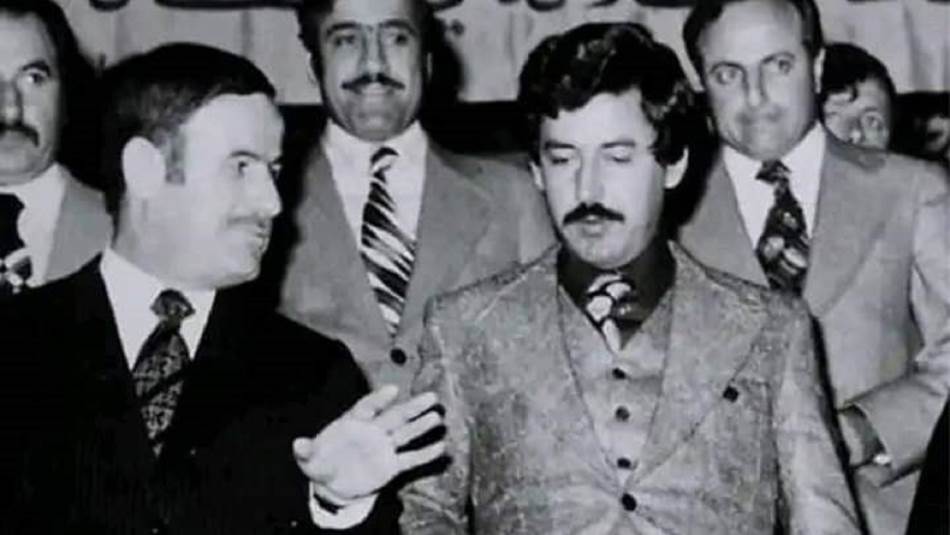The story of General Ali Duba, the founder of the Syrian regime’s modern military intelligence service and one of Hafez al-Assad’s most reliable advisers and old guard, has come to an end after more than 30 brutal years.
On Wednesday, people close to him mourned Doba, who passed away at the age of 89. Duba hailed from a small Alawite family in the village of Qarfis, located in the countryside of Jableh city, south of Lattakia governorate.
Duba’s exceptional relationship with Assad, as one of the key supporters and architects of the 1970 coup, led to his appointment as the head of the military intelligence service in Damascus in November 1970. He later served as the deputy head of the military intelligence service in Syria for three years before assuming the role of its head from 1978 until 2000.
In 1981, Duba was elected to the Central Committee of Syria’s ruling Baath Party and promoted to the rank of major general in the Syrian army.
During Duba’s tenure, the military intelligence service, in collaboration with the Defense Brigades led by Rifaat al-Assad, the brother of Hafez al-Assad, was involved in the infamous 1982 Hama massacre.
Multiple sources indicate that when Assad fell ill in 1983, the responsibility of governing the country was entrusted directly to Duba. This move led Rifaat al-Assad to attempt a famous coup against his brother in 1984. However, the coup ultimately failed thanks to the efforts of a group of loyal men to Hafez al-Assad, led by Ali Duba.
Duba was able to amass significant wealth by taking advantage of a monopoly on smuggled goods, including drugs, through illegal crossings from Lebanon to Syria, establishing a powerful financial empire.
Those who were close to Duba note that during the 1990s, he held a position second only to Hafez al-Assad, not only within the regime but also among the Alawite community on the Syrian coast, to which both Duba and Assad belonged. However, their relationship became competitive, leading Assad to marginalize Duba. Signs emerged that Duba had ambitions to seize the presidency after the death of Assad’s son, Bassel, in 1994, which prompted Assad to shift his focus towards preparing his second son, Bashar, to inherit power.
Upon Bashar al-Assad’s ascent to power in 2000, Duba was sidelined, fulfilling Assad’s intention to phase out the “old guard,” as recounted by contemporaries. Duba made his last public appearance in 2021, appearing in a video clip in a wheelchair at a polling station in his village, participating in the election of Bashar al-Assad.
Duba is recognized for establishing the notorious “Palestine Branch” and overseeing numerous field executions in the Mezzeh and Palmyra prisons under the Military Intelligence. These actions were confirmed by the Western sanctions imposed on Duba at the outset of the Syrian revolution in 2011.
This article was translated and edited by The Syrian Observer. The Syrian Observer has not verified the content of this story. Responsibility for the information and views set out in this article lies entirely with the author.


